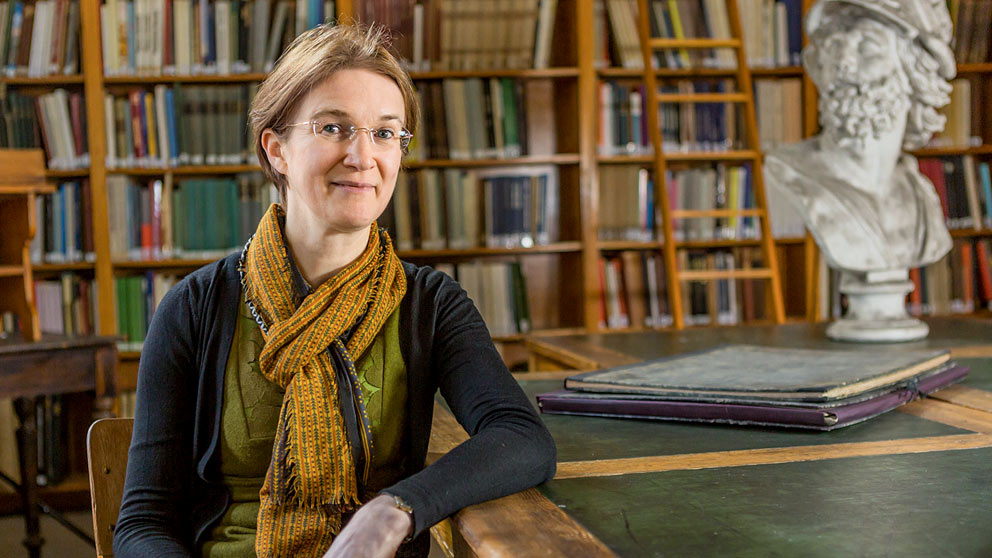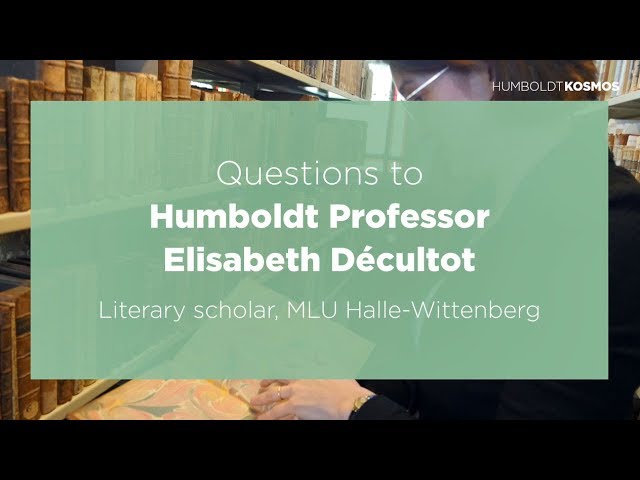Jump to the content
- {{#headlines}}
- {{title}} {{/headlines}}

If you want to trace the history of knowledge transfer in the aesthetics of the 18th century, as Elisabeth Décultot does, you need old books – and they exert a particular fascination on the literary scholar. At the Interdisciplinary Centre for European Enlightenment Studies in Halle and in numerous other archives and libraries in the city and region, Décultot finds the material for her research on the spread of classicism in Europe. This is where she delves into the working habits of the researchers of bygone days. She investigates, for example, how 18th and 19th century scholars read and took extracts from the works of other scholars, what ideas they adopted, moulded and disseminated, and how they did it.
“The amount of material available here is really impressive,” says the distinguished aesthetics researcher. In 2015, Décultot became a Humboldt Professor at Halle-Wittenberg, having moved from Paris. Since then, she has been working to make Halle into one of the leading locations for Enlightenment research in Germany, organising, amongst other things, a major exhibition on the founder of modern art history and archaeology, Johann Joachim Winckelmann, in cooperation with the Klassik Stiftung Weimar.

